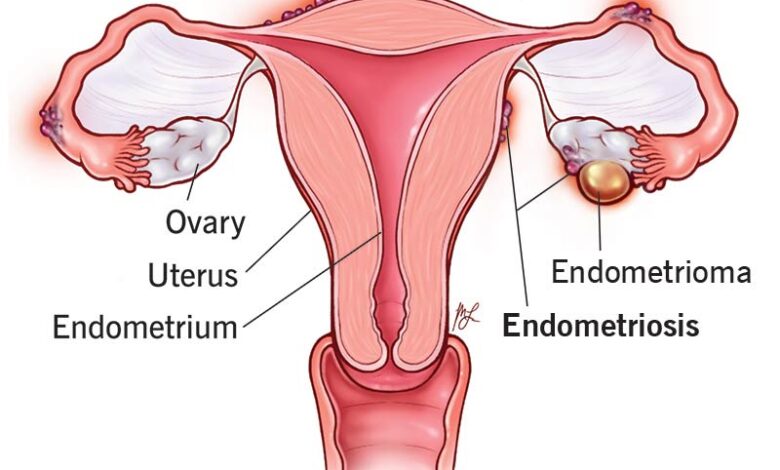Is Endometriosis Curable? A Comprehensive Look

Endometriosis is a chronic, often painful condition affecting millions of women worldwide. It occurs when tissue similar to the lining inside the uterus, known as the endometrium, grows outside the uterus. This can cause severe pain, irregular periods, and fertility issues. Given the impact on quality of life, the question at the forefront for many sufferers is: “Is endometriosis curable?”
Understanding Endometriosis
Before delving into the cure, it’s essential to understand what endometriosis entails. This condition can manifest in various ways, from mild to severe. Common symptoms include:
- Pelvic pain: Often linked to menstrual periods but can occur at other times.
- Menstrual irregularities: Heavy bleeding or bleeding between periods.
- Pain during intercourse: Discomfort that can be debilitating.
- Infertility: Difficulty in becoming pregnant is common among those with endometriosis.
- Other symptoms: Fatigue, diarrhea, constipation, bloating, and nausea, particularly during menstrual periods.
The exact cause of endometriosis is still not entirely understood, but several theories exist, including retrograde menstruation, genetic factors, immune system disorders, and hormonal influences.
Current Treatment Options
While a definitive cure for endometriosis remains elusive, there are several treatment options aimed at managing symptoms and improving quality of life. These treatments can be broadly categorized into medical, surgical, and alternative approaches.
- Medical Treatments:
- Pain Relief: Over-the-counter pain medications, such as NSAIDs (e.g., ibuprofen), are often used.
- Hormonal Therapies: Birth control pills, progestins, gonadotropin-releasing hormone (GnRH) agonists, and antagonists can help control the hormonal environment that fuels endometrial growth.
- Oral Contraceptives: These can help regulate the menstrual cycle and reduce menstrual flow, which may lessen the severity of endometriosis.
- Progestin Therapy: Can shrink endometrial tissue and reduce pain.
- GnRH Agonists: These drugs create a temporary menopausal state, reducing estrogen and halting menstruation.
- Surgical Treatments:
- Laparoscopy: A minimally invasive surgery where endometrial lesions are removed or ablated.
- Laparotomy: A more extensive surgical procedure for severe cases.
- Hysterectomy: Removal of the uterus and sometimes ovaries; considered a last resort, particularly for women who do not want more children.
- Alternative Treatments:
- Lifestyle Changes: Diet modifications, regular exercise, and stress management can play a supportive role.
- Acupuncture and Herbal Medicine: Some women find relief through alternative medicine practices.
- Pelvic Floor Therapy: Physical therapy focused on the pelvic region can help alleviate pain.
Is There a Cure?
Despite the variety of treatments available, a definitive cure for endometriosis remains out of reach. The disease is complex and varies significantly from person to person. Current treatments primarily focus on managing symptoms and improving quality of life rather than eradicating the disease.
Research and Future Directions
The future of endometriosis treatment lies in ongoing research. Scientists are exploring several promising avenues:
- Genetic Research: Understanding the genetic basis of endometriosis could lead to targeted therapies.
- Stem Cell Therapy: Investigating how stem cells might be used to treat or manage endometriosis.
- Immunotherapy: Exploring how the immune system’s role in endometriosis could be harnessed to develop new treatments.
- New Medications: Development of drugs that specifically target the mechanisms of endometrial tissue growth and inflammation.
Living with Endometriosis
While the quest for a cure continues, those living with endometriosis can take proactive steps to manage their condition:
- Education and Support: Learning about endometriosis and connecting with support groups can provide emotional and practical support.
- Regular Medical Care: Ongoing consultation with healthcare providers to tailor treatments as symptoms change.
- Self-Care Practices: Incorporating regular exercise, healthy eating, and stress-reducing activities can help manage symptoms.
Conclusion
Endometriosis remains an incurable but manageable condition. While current treatments offer significant relief for many, the hope for a definitive cure lies in the future advancements of medical science. Until then, individuals with endometriosis can work closely with healthcare professionals to find the best strategies for managing their symptoms and maintaining their quality of life.



